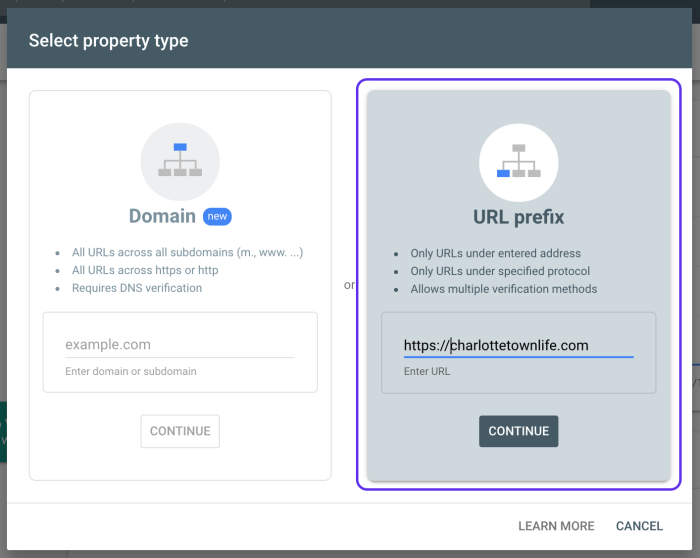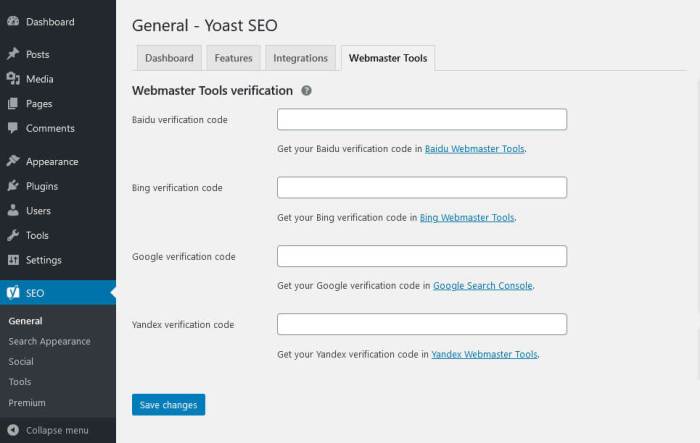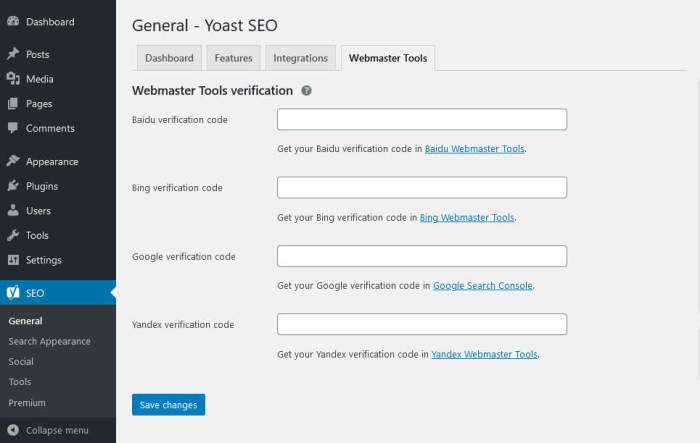Google Webmasters changes name to Search Central. This significant rebranding signals a shift in Google’s approach to search engine optimization, potentially impacting website owners and professionals. The new platform, Search Central, promises a more integrated and comprehensive experience, focusing on the evolution of search engine features. We’ll explore the key motivations behind this change, examine its implications for website owners, and delve into the potential future of search engine tools.
The change reflects Google’s ongoing effort to streamline and improve its search ecosystem. It aims to better organize the various tools and features related to search engine optimization, making it easier for website owners and SEOs to understand and utilize them. This shift might require adjustments to current strategies, analytics, and technical optimization, but it could also open new opportunities for improved website performance and visibility.
Overview of the Change
The Google Webmasters Tools have undergone a name change, evolving into Search Central. This shift reflects Google’s ongoing efforts to clarify their services and better align them with the user experience of search. The rebranding aims to streamline the interface and provide a more comprehensive resource for website owners and professionals.This renaming isn’t just a cosmetic change; it signifies a deeper commitment to providing actionable insights and tools to enhance website visibility in Google Search results.
It suggests a move towards a more holistic understanding of search, encompassing not just technical aspects but also user experience and broader strategies.
Key Motivations Behind the Rename
Google has explicitly stated their reasons for the name change. They aim to better communicate the breadth of services now offered within the platform, which includes more than just webmasters tools. The new name, Search Central, better reflects the comprehensive nature of the resources and tools available, encompassing aspects like search algorithms, quality guidelines, and best practices for search optimization.
The previous name, Webmasters Tools, had a somewhat narrow focus, while Search Central encompasses the entire spectrum of Google Search interactions.
Expected Impact on Website Owners and SEOs
The rebranding is expected to have a significant impact on website owners and professionals. Website owners will gain access to more centralized and integrated information about search. This means a smoother workflow, improved organization of resources, and more effective tools for site optimization. professionals will benefit from a more comprehensive understanding of Google’s search ecosystem, which allows for a better strategy to improve rankings.
So, Google’s Webmasters Tools are now Search Central. It’s a pretty big change, but don’t let that throw you off your SEO game! Remember, focusing on click-through rates (CTR) is still crucial. For a deep dive into why CTR matters and how to optimize it, check out this excellent resource on dont give up on the ctr.
Ultimately, understanding how to maximize CTR is key to navigating these shifts in Google’s interface and ensuring your site continues to perform well in search results.
The shift from a “tools” mindset to a “central hub” for search signals a paradigm shift towards a more holistic approach to search engine optimization.
Comparison of Old and New Names
| Feature | Old Name (Webmasters Tools) | New Name (Search Central) | Description |
|---|---|---|---|
| Core Focus | Technical aspects of website visibility | Comprehensive search ecosystem | The old name focused primarily on the technical aspects of how websites appear in search results. The new name emphasizes the entire ecosystem of search, including algorithms, quality guidelines, and user experience. |
| Scope | Limited to website technical issues | Broader, encompassing user experience and search quality | Webmasters Tools primarily addressed issues like robots.txt, sitemaps, and crawl errors. Search Central expands this to include broader search optimization, user signals, and algorithmic updates. |
| User Perception | Specialized toolset | Centralized hub for search knowledge | Webmasters Tools often felt like a collection of separate tools. Search Central implies a more integrated and comprehensive approach to search optimization. |
Implications for Website Owners
The Google Webmaster Tools rebranding to Search Central signifies a shift in Google’s approach to website optimization. This change isn’t just a name change; it reflects a deeper focus on the entire search ecosystem, and understanding this evolution is crucial for website owners to maintain and improve their online presence. This new structure provides a more comprehensive view of Google’s search algorithms and practices.This rebranding necessitates a proactive approach for website owners.
Instead of simply reacting to algorithm updates, understanding the underlying principles of Search Central allows for more strategic and anticipatory adjustments to website optimization strategies. This proactive approach is key to adapting and thriving in the ever-evolving search landscape.
Google’s Webmasters Tools have a new name – Search Central. This rebranding signals a shift in focus, and for local businesses like those in North Wilkesboro, NC, understanding these changes is crucial for online visibility. A well-designed website, like the ones offered by local web designers in North Wilkesboro, NC north wilkesboro nc web design , is key to adapting to these evolving search algorithms.
Ultimately, Search Central’s goals are still about helping websites rank well in search results.
Technical Optimization Strategies
The shift to Search Central suggests a broader emphasis on technical beyond just optimization. Website owners need to focus on core web vitals, mobile-friendliness, and secure connections (HTTPS) more rigorously. A comprehensive site audit, including crawl analysis and indexing checks, becomes paramount to identify and address technical issues promptly. Understanding and implementing schema markup for structured data becomes even more vital to ensure accurate and comprehensive representation of website content to search engines.
Website Analytics and Monitoring
Effective website analytics and monitoring are fundamental to understanding how Search Central changes impact your site’s performance. Website owners should analyze search traffic patterns and user behavior more closely. Tools such as Google Analytics and Search Console will remain vital for tracking rankings, click-through rates, and other crucial metrics. A key aspect will be integrating data from Search Central resources to gain a deeper understanding of how changes affect your site’s visibility and user experience.
Organizing Potential Steps for Updating Strategies
To effectively navigate the changes, a structured approach is essential. A suggested methodology for updating strategies involves these steps:
- Review existing strategies: Evaluate current optimization techniques, identifying strengths and weaknesses. Analyze historical data to understand the impact of previous updates.
- Assess Search Central resources: Thoroughly explore the new resources offered by Search Central, learning the latest search algorithms and best practices. This includes understanding the new terminology and how it relates to previous practices.
- Identify areas for improvement: Determine specific areas within technical optimization, content, and analytics that need improvement or adjustment based on the Search Central resources.
- Implement changes: Execute the identified improvements, tracking progress and making necessary adjustments along the way.
- Monitor and adapt: Regularly monitor the impact of changes on search rankings and user experience. Adapt your strategy based on the insights gained.
Key Resources and Tools within Search Central
Understanding the available tools is crucial for successful strategy adjustments.
| Resource | Description | URL (if available) |
|---|---|---|
| Search Console | Provides data and tools for monitoring and maintaining website presence in Google Search results. | search.google.com/search-console |
| Search Central Blog | Provides insights, updates, and guidance on Google’s search algorithms and best practices. | (Likely a dedicated Search Central blog page) |
| Developer Tools | Offers resources and tools for developers to optimize websites for search engines. | (Likely a dedicated Google Developers section) |
| Search Quality Rater Guidelines | Provides information about how Google evaluates and ranks websites. | (Likely a dedicated Search Quality Rater Guidelines page) |
Evolution of Search Features
The Google Search Central rebranding signifies a significant evolution in how Google handles search engine optimization (). This shift reflects Google’s commitment to providing more comprehensive and integrated tools for website owners to understand and optimize their presence in search results. The new platform streamlines access to critical data and insights, facilitating a deeper understanding of the evolving search landscape.The integration of previously disparate search tools under a unified platform is a key aspect of this evolution.
This centralization allows for a more holistic approach to , providing a more complete picture of search algorithm functions and user interactions. This comprehensive view empowers website owners to make more informed decisions about their online strategies.
Refined Search Algorithm Understanding
Google’s search algorithms are complex and constantly evolving. The new Search Central provides a more structured way to understand the key factors influencing search results. By consolidating various tools and features, Google aims to clarify the intricate relationships between different ranking signals, providing greater transparency and enabling website owners to adapt their strategies effectively. This improved clarity allows for a more data-driven approach to , facilitating proactive optimization rather than reactive adjustments.
Integrated Search Tools and Features
The new Search Central platform integrates various previously dispersed search tools and features. This integration provides a more streamlined and user-friendly experience for website owners. Instead of navigating through multiple platforms, website owners can now access a wide range of tools in a single location. This consolidation fosters a deeper understanding of the interconnectedness of search factors.
Summary of Key Tools and Features
This table summarizes the key tools and features found within the new Search Central platform. The consolidated platform provides a single point of access for various search-related functionalities.
| Tool | Purpose | Usage |
|---|---|---|
| Search Console | Monitor website performance in Google Search results, identify technical issues, and submit sitemaps. | Track indexation status, crawl errors, and search query performance. |
| Data Studio Reports | Generate customized reports on website performance metrics, including search traffic and rankings. | Analyze website traffic, rankings, and user engagement data for insights. |
| Google Search Central Blog | Receive the latest updates on search algorithm changes, new features, and best practices. | Stay informed about evolving search trends, guidelines, and updates from Google. |
| Structured Data Testing Tool | Validate structured data markup on webpages, ensuring correct interpretation by search engines. | Verify that structured data is correctly implemented, enhancing visibility in search results. |
Impact on Practices

The rebranding of Google Webmasters to Search Central signals a shift in Google’s approach to search. This isn’t just a name change; it’s an evolution of how Google interacts with website owners and how they approach search engine optimization (). This change underscores the growing importance of understanding the intricate algorithms and ever-evolving features of Google’s search ecosystem.The shift emphasizes the interconnectedness of various search features and their impact on overall website performance.
strategies need to adapt to this new focus on the holistic user experience and the technical aspects of site architecture. This necessitates a more nuanced understanding of how search results are generated and how websites can best position themselves within that framework.
Potential Adjustments to Strategies
strategies will need to incorporate a broader perspective than just optimization. A more comprehensive approach, encompassing site architecture, mobile-friendliness, page speed, and security, will become increasingly important. Prioritizing user experience (UX) will be paramount, as Google’s algorithms increasingly favor sites that provide a seamless and satisfying user experience. This means focusing on high-quality content, intuitive navigation, and an overall engaging website design.
So, Google’s Webmasters Tools are now Search Central – a pretty straightforward name change. But what does this mean for small businesses trying to navigate the ever-shifting online landscape? Finding a solid SEO expert is key, and if you’re in North Carolina, this guide can help you pinpoint the right person for your needs. Ultimately, understanding these changes will help you adapt your strategies to maintain a strong online presence in the Search Central era.
Key Resources in Search Central
Search Central offers a wealth of resources for SEOs to navigate the evolving search landscape. Understanding these resources is crucial for adapting strategies. Key resources include the Search Central Help Center, Search Console, and various documentation pages. These resources provide in-depth information on search algorithms, best practices, and the latest updates. They offer detailed explanations of the various factors influencing search rankings, allowing SEOs to fine-tune their strategies accordingly.
For instance, the Search Console provides data on how Googlebot crawls and indexes a site, offering insights into potential issues.
Comparison of the Landscape
The landscape before the rebranding was primarily focused on optimization and technical aspects of site structure. The emphasis was on optimizing for specific search terms to improve rankings. However, the new Search Central framework emphasizes a broader perspective, recognizing the multifaceted nature of search and its impact on the user experience. The shift from a -centric approach to a more holistic strategy reflects Google’s commitment to delivering relevant and high-quality search results to users.
Optimizing Website Performance
Optimizing website performance in light of Search Central tools requires a multifaceted approach. This involves leveraging the Search Console to identify technical issues, understanding the impact of core web vitals on search rankings, and implementing strategies for improved site speed and mobile-friendliness. For example, identifying and resolving crawl errors reported in Search Console directly impacts website indexing. Moreover, utilizing data insights from Search Console to optimize site structure and content can significantly enhance search visibility.
Future Trends and Predictions

The evolution of search is a dynamic process, constantly adapting to user needs and technological advancements. Google Search Central, now Search Central, will likely continue this trend, emphasizing user experience and semantic understanding over -based optimization. We can anticipate a shift towards more sophisticated tools and data analysis, providing a more holistic approach to website optimization.The future of Search Central will likely involve more integrated features, streamlining the process for website owners to understand and improve their site’s visibility.
This will mean a more proactive and preventative approach to issues that might impact search rankings, rather than just reacting to changes after they occur. This proactive approach is vital to stay competitive in the constantly evolving digital landscape.
Possible Future Directions for Search Engine Tools
Search tools are expected to become more sophisticated in their ability to understand context and intent. This will go beyond simple matching to encompass a deeper understanding of user queries, including nuanced language, conversational patterns, and even the user’s location and past search history. Advanced AI and machine learning algorithms will likely play a critical role in this evolution, enabling search engines to deliver more relevant and accurate results.
Anticipated Changes and Improvements within the Search Central Platform
Search Central will likely expand its suite of tools, providing more granular control and insights into search performance. We can anticipate more detailed data visualization tools, allowing website owners to analyze traffic patterns, user engagement, and identify areas for improvement with greater precision. Predictive analytics and trend analysis tools will likely become more prevalent, allowing for proactive adjustments to strategies.
Potential Impacts on Website Optimization Trends, Google webmasters changes name to search central
The emphasis on user experience and semantic understanding will likely influence website optimization trends. Website owners will need to focus on creating high-quality, informative content that caters to user needs rather than simply optimizing for s. Technical , including website speed and mobile-friendliness, will remain crucial, as these factors directly impact user experience. Focus on building authority through high-quality backlinks and establishing a strong online presence will also become more important.
Table of Possible Future Updates or Tools within Search Central
| Feature | Description | Estimated Release Date (if applicable) |
|---|---|---|
| Advanced Content Analysis Tool | Provides insights into content quality, identifying areas for improvement based on user engagement and search query data. | 2024-2025 |
| AI-Powered Research Tool | Predicts emerging search trends and identifies relevant s based on user behavior and search patterns. | 2024 |
| Enhanced Site Audit Tool | Identifies technical issues impacting site performance and provides actionable recommendations for improvement. | 2024 |
| Real-Time Search Performance Dashboard | Provides immediate feedback on site performance changes, allowing for real-time adjustments to strategies. | 2025 |
Visual Representation of the Change: Google Webmasters Changes Name To Search Central
The Google Search Central rebranding marks a significant shift in how Google presents its tools and resources for website owners. This evolution isn’t just about a new name; it’s about a redesigned approach to helping website owners understand and optimize their presence in Google’s search results. This section will visually illustrate the key differences between the previous Webmaster Tools and the new Search Central interface.
Infographic Overview of the Change
The infographic below provides a high-level visual representation of the shift from Webmaster Tools to Search Central. It highlights the key features and areas of focus that have changed. It is designed to quickly communicate the transition to a new ecosystem focused on search.  Caption: This infographic illustrates the shift from Webmaster Tools to Search Central. The old tools are depicted with a faded color scheme, while the new Search Central tools are in a vibrant color scheme, signifying a fresh approach and focus on search.
Caption: This infographic illustrates the shift from Webmaster Tools to Search Central. The old tools are depicted with a faded color scheme, while the new Search Central tools are in a vibrant color scheme, signifying a fresh approach and focus on search.
Key changes, such as the integration of new features and the emphasis on search performance are highlighted.
Visual Interface Comparison Table
The table below directly compares the visual elements of the old Webmaster Tools interface with the new Search Central interface. This allows a direct comparison of the layout and functionality differences.
| Element | Old Interface (Webmaster Tools) | New Interface (Search Central) | Description |
|---|---|---|---|
| Navigation | Hierarchical menu structure with distinct sections for sitemaps, indexing, and more. | Unified dashboard with a prominent search bar and integrated features. | The old interface had a more structured menu system, while the new interface emphasizes direct access to various features through a central dashboard. |
| Dashboard | Separate sections for different tasks, often showing data in tabular format. | Interactive dashboard presenting a comprehensive overview of site performance and search data. | The old interface presented information in a more compartmentalized way, while the new interface provides a consolidated view of site health and search performance. |
| Reporting | Individual reports for various metrics, like crawl errors and index coverage. | Real-time insights and visualizations of site performance in search results. | The new interface emphasizes real-time data and visualizations for easier interpretation of site performance data. |
| Overall Design | More traditional, possibly slightly cluttered layout with multiple toolbars. | Modern, streamlined layout emphasizing clarity and intuitive navigation. | The new design focuses on clear, concise information presentation to enhance usability and accessibility. |
Image Showcase of Layout Changes
The following images depict the visual layout changes between the old Webmaster Tools and the new Search Central platforms. Each image showcases a specific aspect of the interface evolution.  Caption: This image displays a typical dashboard from the old Webmaster Tools interface. Notice the distinct sections and the focus on individual reports.
Caption: This image displays a typical dashboard from the old Webmaster Tools interface. Notice the distinct sections and the focus on individual reports.  Caption: This image shows a typical Search Central dashboard.
Caption: This image shows a typical Search Central dashboard.
The dashboard is more streamlined, with a prominent search bar and interactive elements that provide a more comprehensive view of site performance.  Caption: This image directly compares the reporting methods in both interfaces. The old interface provides individual reports for various metrics, while the new interface uses real-time visualizations and dashboards.
Caption: This image directly compares the reporting methods in both interfaces. The old interface provides individual reports for various metrics, while the new interface uses real-time visualizations and dashboards.
Final Conclusion
In conclusion, Google’s renaming of Webmasters Tools to Search Central marks a substantial evolution in how website owners and SEOs interact with search engine optimization tools. The new platform, Search Central, integrates various search features, potentially impacting optimization strategies and website performance. This change underscores Google’s commitment to a more streamlined and comprehensive search experience, and understanding these changes is crucial for maintaining and improving a website’s visibility in search results.






